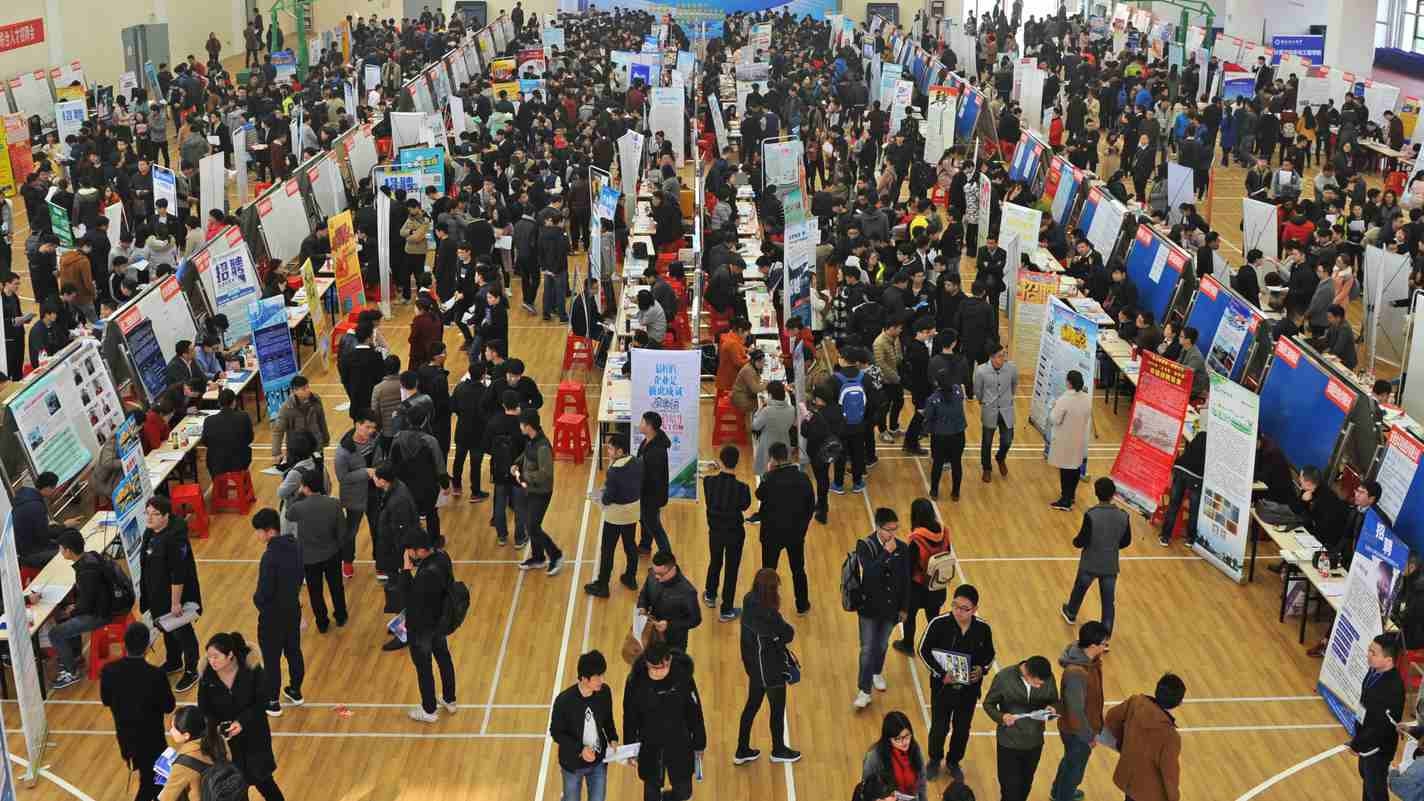In Beijing’s moving and relocation industry, Wu Wei is a veteran operator. For years, the stocky 30-something has served his clients conscientiously and built a small outfit of his own.
Wu Wei’s hometown is in central China’s Henan Province, nearly 700 km to the south of Beijing. Like himself, the great majority of his patrons come from regions far away from the sprawling metropolis. Most of them are in their early 20s, around the same age when Wu first arrived in Beijing.
“The summer tends to be the busiest season for me,” said Wu Wei. “Most students leave college from May to August and they have to move out of the dorms and find their first place off the campus.”

A job fair for new college graduates in 2016. /CFP Photo.
Wu Wei’s target demographic would have included Li Jiemin, who grew up in northeast China’s Jilin Province, about 1,000 km away from Beijing. It was in the summer of 2012 that Li graduated and came to the capital city, to live in a room only 10 square meters in size, sharing an apartment with two others.
In November 2016, Li posted a message on her social media account, marking the tenth time that she had moved home in Beijing. The post reads, “All those travails of home-moving have make me stronger than before and initiated me about life’s reality.”
Li Jiemin’s current home costs 3,000 yuan (about 435 US dollars) a month, five times that of her first room in Beijing. Her frequent moves from place to place over the years have all been motivated by career changes or pay increases.
However, not everyone has been as lucky. According to Wu Wei, a keen observer, a lot of his clients have to move home for less pleasant reasons. Sometimes they have disagreements with landlords or agents. Sometimes young couples break up. Only rarely does someone come along who can beat the exorbitant house prices to buy an apartment and end their days as a renter.
Like Miss Li, most of Wu Mei’s clients are college graduates who chose to seek an opportunity in Beijing. Without permanent residence, they are commonly referred to as “Bei Piao”, or Beijing drifters, although most have a white-collar job, a steady income, and a clearly-defined goal.
Of Beijing's population, more than 21 million, some eight million of those do not have a local Hukou household registration. The municipal government is currently trying to cap the city's population at 23 million by 2020.
2km










